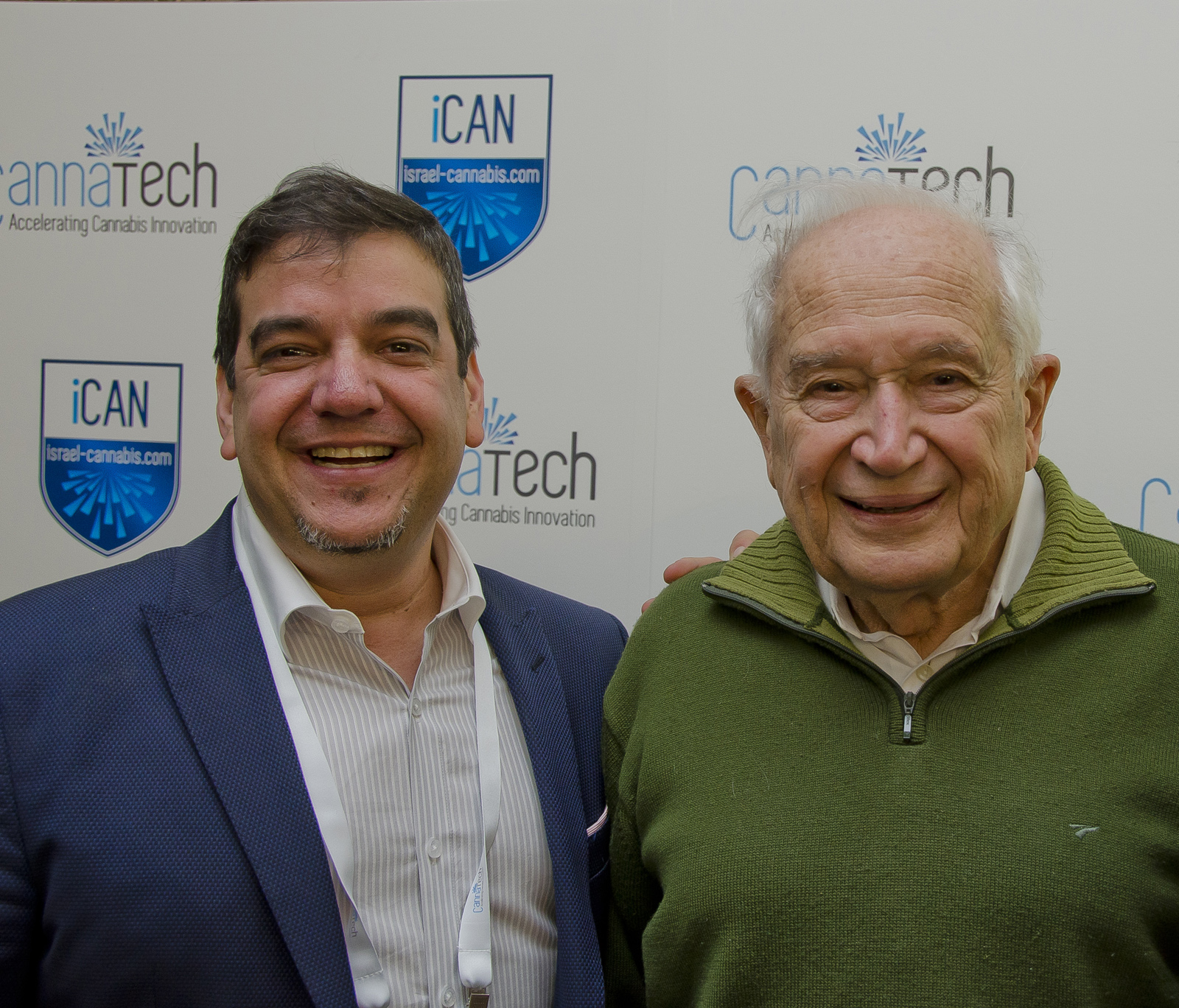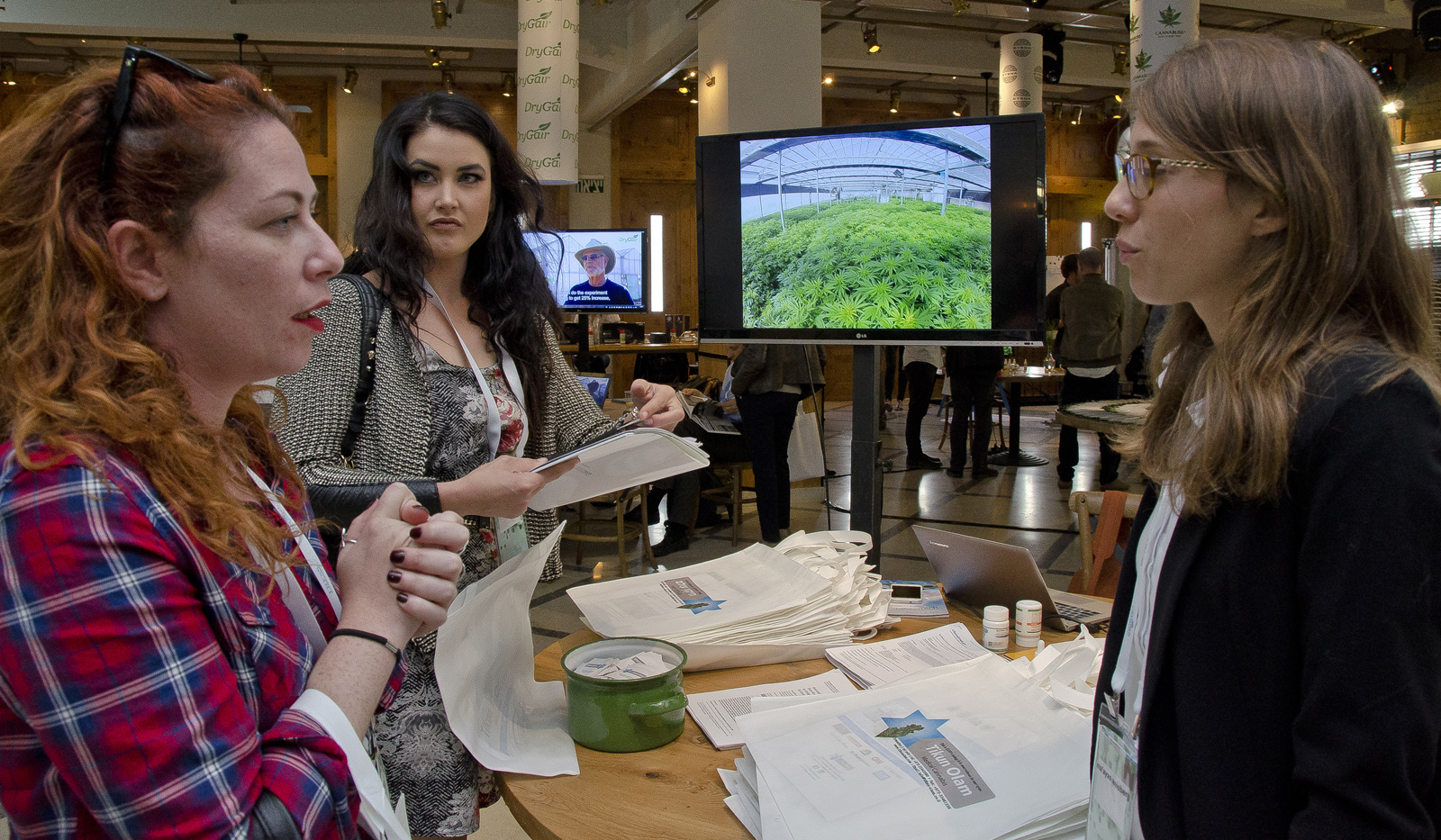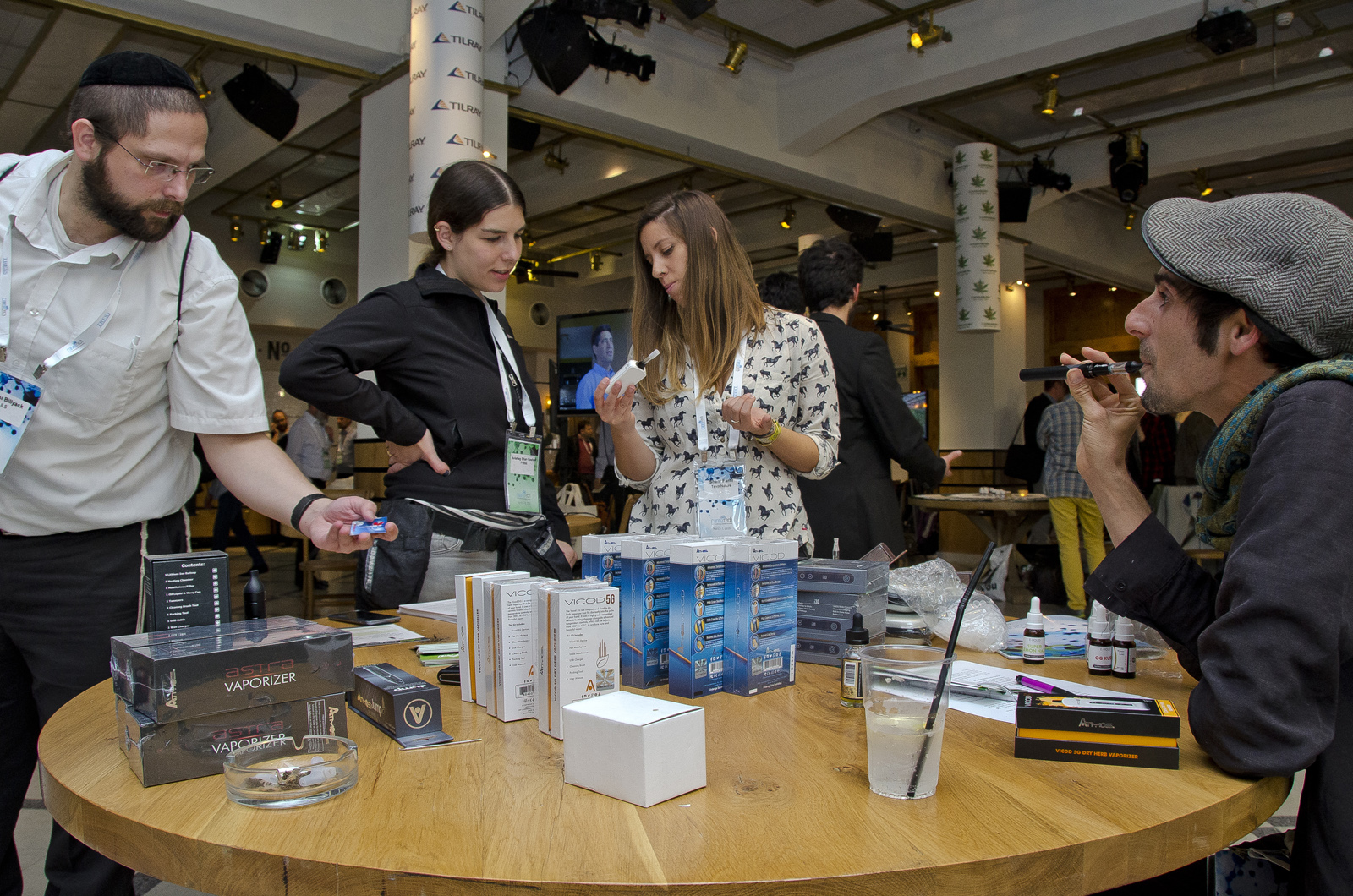Marijuana conferences are popping up on a near weekly basis in the United States. Entrepreneurs, scientists and investors have to weed out the recreational gatherings from the more important industry confabs.
But there was no doubt that the CannaTech 2016 International Summit on Cannabis Innovation this week in Tel Aviv and Jerusalem was an essential event.
Dressed in business attire, taking notes and handing out business cards, hundreds of delegates from 15 countries – including Colombia, Brazil, the US, Canada, Uruguay, Czech Republic, UK and Australia – took part in the two-day, two-city event dedicated to the emerging cannabis industry.
“Israel is ground zero for credibility, integrity, the clients, the clinical trials,” cannabis activist Cheryl Shuman, founder of the Beverly Hills Cannabis Club, tells ISRAEL21c.
Shuman, who credits Israel with saving her life thanks to its advanced medical marijuana research, teamed up with the iCAN-Israel Cannabis startup and VC to help promote CannaTech.
“For any company around the world that wants to be legitimate and taken seriously, with true legitimate science behind them, this is where they must be,” says Shuman, who takes marijuana daily following ovarian cancer.
Israeli cannapreneurs (entrepreneurs in the cannabis industry) are working hard to keep Israel as a global leader in medical cannabis research and development. Saul Kaye, CEO of iCAN and CannaTech, is one of the main cannapreneurs in the country.
“Israel’s role is to lead the research, validate the data and build a methodology behind getting that data,” says Kaye.
“Cannabis isn’t just growing a plant or creating a medicine. Cannatech [comprises] agriculture technologies, apps, mobile apps, web interfaces, products and market interfaces already waiting to be tapped into,” he says.

At the conference, Kaye announced that iCAN and Breath of Life, an Israeli medical cannabis agricultural association, are partnering to create the first cannabis R&D center and incubator with a focus on pharmaceutical research.
“The incubator model best fits very early industries needing capital and needing operators to propel them forward, and that’s what we’re providing,” Kaye tells ISRAEL21c. “This industry is very young. The entrepreneurs are those coming out of home growers, maybe even the stoner generation, and they’ve got an idea in the space but they’re not businessmen. We’re going to bring them into an incubation period. We’re going to invest time and money and we have a pipeline into the US for commercialization of the products.”
Research and entrepreneurship
Also at the CannaTech event, the Hebrew University of Jerusalem announced its new Multidisciplinary Center on Cannabinoid Research.
Hebrew University Prof. Raphael Mechoulam put Israel on the medical marijuana map for his early groundbreaking research in isolating the active compound from cannabis, THC, and inspired generations of researchers in several countries.
“Mechoulam is a celebrity in the US cannabis market. He really opened up the evolution of the medicinal benefits of the marijuana from being anecdotal for thousands of years to now bringing real science behind it so it becomes FDA recognized. It’s his work that has opened the field,” says New York-based investor Scott Greiper.
Delegates greeted Mechoulam with a standing ovation as he took the stage to deliver the conference’s keynote address.
“We started work 50 years ago. There was no question of responsibility; in fact, no one was really interested. We thought it was important, so we did it,” says Mechoulam, crediting Israel’s progressive regulations with helping him and other scientists research cannabis and clinically test its efficacy against myriad illnesses.
He reminisced how there were no growers in Israel at the time and he had to get his hashish samples directly from the police.
Today, there are eight cannabis farms operating under license from the Israel Ministry of Health. At CannaTech 2016, they showed off proprietary cannabis varieties and innovative products suited to specific diseases. The growers – including Tikun Olam and Breath of Life — are global players with collaborations around the world.
Mechoulam says Israelis have joint research efforts underway with Canada, the US, Spain and Italy.

Investing in weed
Some of the Israeli companies exhibiting at CannaTech 2016 were Eybna Technologies (natural terpene-based cannabis flavors, free of illegal traces); CanOmix (genetic barcoding and breeding of cannabis strains); Cannabliss (medical cannabis products); Tikun Olam (supplier of medical cannabis); Kalytera (proprietary cannabinoid and endocannabinoid-like medicines); and DryGair (dehumidifiers for cannabis).
Mara Gordon, cofounder of Aunt Zelda’s — a data-driven developer of cannabis-based medicines – told ISRAEL21c she was astounded by the professionalism of the exhibitors.
“If this were the US, there would be 200 vendors with slick packaging in this exhibit area. There are so many events with people pushing products or pushing money,” says Gordon, who is next headed to CannaMed at Harvard. “I feel like Israel is the scene of innovation in this. I like the goal of the conference in bringing together research, science and tech opportunities.”

Gordon, a process engineer, got into the cannabis industry after the super plant helped her beat bacterial meningitis, get off 26 daily meds, overcome kidney disease and get out of a wheelchair. “Cannabis doesn’t treat; it heals,” she says.
Cannabis entrepreneur and investor Garyn Angel was having a look around the Israeli startups exhibit area.
“Israel is the epicenter of scientific research throughout cannabis. If you want to invest in this space and you want the pharmaceuticals, this is where you need to be,” says the CEO of Angel Enterprises in Florida.
Also at CannaTech looking for possible investments was Greiper, who heads Viridian Capital Advisors, a group of Wall Street analysts and bankers bringing strategic direction to the emerging cannabis sector.
“It’s not scary to invest in cannabis. If it was, I wouldn’t have started Viridian,” Greiper tells ISRAEL21c. In the last three months, his company has raised $25 million for its six portfolio companies.
“Israel is the bastion of the most experience from an R&D, biotech and drug development perspective,” he says.
Greiper explains that investing in cannabis means more than pharmaceuticals. He notes retail (dispensaries), cultivation, agricultural technologies, security and software are also part of the cannabis industry.
“For investors, it’s not a regulatory issue. Whether you invest in growers or an ancillary, you have to believe in the entrepreneur and business model. The industry, the plant, the technology are quite exciting,” he says.
Greiper, Angel and other conference attendees repeated that the mainstream stigma associated with cannabis is fading and not harming business. Helped by new regulations easing the market, the medical cannabis market is expected to hit more than $20 billion in the US alone by the year 2020. Kaye says the Israeli cannabis market is worth some ₪2 billion.
Adds Greiper: “This industry does not lack for capital, this industry does not lack for opportunity. … There are many ways to invest in the cannabis industry. That’s why I’m here.”
Cannapreneur Kaye says Israeli cannabis startups can do for medical marijuana what Netafim did for irrigation. “Even without exporting the raw flower, we can export the technology in growing it.”
















